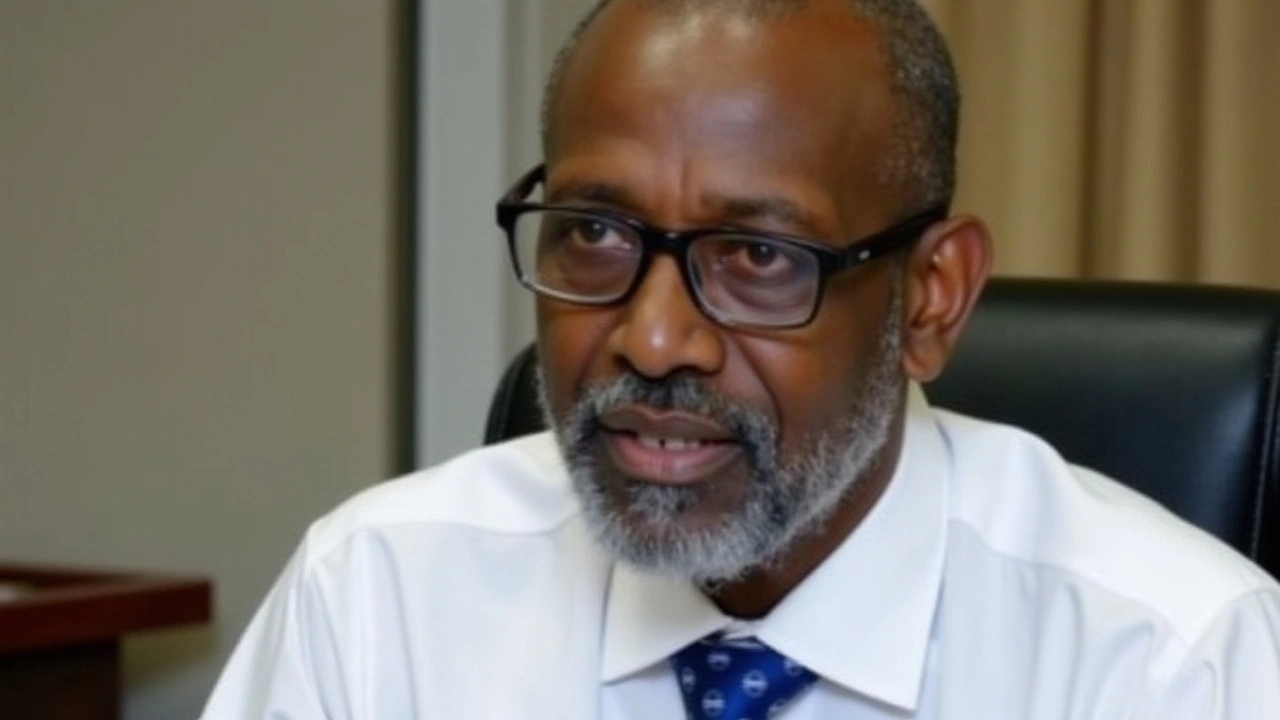The Detention and Its Immediate Repercussions
The detention of Fisayo Soyombo, a well-respected investigative journalist and founder of the Foundation for Investigative Journalism (FIJ), marks yet another troubling chapter in the chronicles of journalism under siege in Nigeria. His name has become synonymous with incisive reporting and exposés that delve deep into the country's entrenched issues of corruption and malpractice. However, in late November, the journalist found himself on the receiving end of the state's alleged oppressive tactics that many claim are aimed at stifling free speech and the pursuit of truth.
Soyombo's arrest was carried out by the 6 Division of the Nigerian Army in Port Harcourt, Rivers State, amid operations supposedly targeting illegal oil bunkering activities. The army contended that Soyombo was apprehended at an illegal site and insisted that a preliminary investigation was necessary to determine his involvement. This claim was immediately met with skepticism and outrage from various corners, including media houses, civil society organizations, and human rights activists, who saw it as a direct assault on press freedom.
Allegations and Defense
The army's rationale for Soyombo's arrest was couched in accusations of him being found at an illicit oil bunkering location, insinuating his possible complicity. His detention over three days fueled speculations that these charges were merely concoctions to deter his investigative endeavors, particularly his allegations regarding the Nigerian Customs Service's alleged collusion with smuggling syndicates operating along the Nigeria-Benin Republic borders. This narrative gained traction as it echoed earlier grievances against state apparatuses attempting to censor unwelcome scrutiny.
In light of the serious nature of these allegations, various rights groups and media organisations quickly came to Soyombo's defense. Highlighting the incongruity between his professional pursuits and the army's claims, FIJ, amongst others, posited that the arrest not only attempts to mask the misconduct of state operatives but also sets a dangerous precedent for journalism in the region. They reiterated the unlawful nature of his arrest, aligning themselves with institutions like Amnesty International, which also demanded Soyombo's immediate and unconditional release, labeling the detention unjust and presumptive.

Response from the Civil Society and Media
The reaction from across different sectors was swift and unequivocal. Notable amongst the figures voicing their dissent was human rights activist Deji Adeyanju, who vehemently condemned the Navy's involvement in the incident. He accused the naval forces of being complicit in the very oil thefts they claim to oppose, suggesting that Soyombo's arrest was a diversionary tactic to conceal their own illegal undertakings.
This perspective was reinforced by several media rights organizations, such as the Media Rights Agenda, which deemed the army's actions as a flagrant misuse of power. They evaluated it against constitutional norms, arguing that such coordinated intimidation tactics not only threaten the sanctity of journalism but serve to undermine Nigeria's democratic fabric. A growing chorus of online demands under the rallying hashtag #FreeFisayoNow ensued, pushing the discourse on press freedoms into the global conscience.
The Release and Aftermath
Soyombo was eventually released on Friday, November 29, 2024, following intense societal and media pressure. His release, however, was not without its own set of controversies and concerns. While FIJ acknowledged the army's mischaracterization of Soyombo's involvement in illegal oil bunkering, they expressed ongoing concerns regarding the potential threats to his safety. During his detention, he was reportedly compelled to share sensitive information with the authorities, raising fears about future repercussions and intimidations.
The event encapsulates a broader dialogue about the volatile relationship between the state and its watchdogs, emphasizing the importance of safeguarding journalistic freedoms as a cornerstone of functional democracy. It forces a reckoning with the various tactics employed by authority figures to silence critics, reaffirming the need for statutory reforms and greater protections for the press.

A Broader Context
While Soyombo's ordeal has come to an end, at least for now, it rekindles the ever-pressing debate over the challenges faced by investigative journalists in Nigeria and other similarly governed regions. Journalists who strive to uncover the truth are frequently subjected to intimidation, threats, and even detention. These instances not only imperil individual journalists but exert a chilling effect that can deter essential investigative work, potentially leaving many injustices unreported and unchecked.
The international community often views such actions as detrimental to the principles of free speech and democracy, advocating for the Nigerian government to adopt reforms that protect journalists as they carry out their critical functions. The outcry following Soyombo’s detention serves as a stark reminder of the constant peril that shadow those who dare to speak truth to power and underscores the urgent need for protective measures that ensure the media can operate without fear of retribution.
Conclusion
Fisayo Soyombo’s story, marked by detention and subsequent release, is emblematic of a larger struggle faced by media practitioners within restrictive environments. It amplifies calls for global solidarity in standing up for press freedom and human rights, urging reforms that enshrine the safety and independence of journalists. Such efforts remain crucial as society grapples with the imperative to uphold truth and accountability amidst a rapidly evolving political landscape.



Brajesh Yadav
November 30, 2024 AT 08:29Govind Gupta
December 1, 2024 AT 03:15tushar singh
December 2, 2024 AT 02:32Robert Shealtiel
December 2, 2024 AT 19:41Marrissa Davis
December 3, 2024 AT 23:38Sean Brison
December 4, 2024 AT 17:43Norm Rockwell
December 4, 2024 AT 23:59Lawrence Abiamuwe
December 5, 2024 AT 03:37Dan Ripma
December 6, 2024 AT 06:44amrin shaikh
December 6, 2024 AT 07:58jai utkarsh
December 6, 2024 AT 14:07Chandan Gond
December 6, 2024 AT 14:44